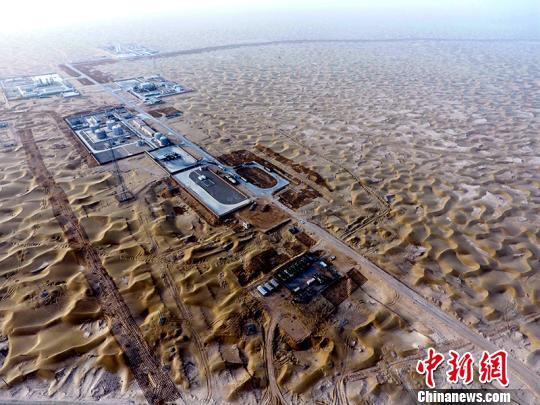(Peoples Daily Online)14:41, July 02, 2020![]()
On June 18, U.S. President Donald Trump said on Twitter that “the U.S. certainly does maintain a policy option, under various conditions, of a complete decoupling from China.” U.S. media remarked that it was Trump’s most forceful statement yet on the souring ties with China.
However, the attitudes of U.S. enterprises show just how difficult it will be for the U.S. to exercise this option.
Politics cannot change China’s important role in global supply chain
About 80 percent of the world’s traded goods are transported through ports. Due to the impact of the COVID-19 pandemic, many American enterprises are hoping to receive goods from China quickly.
While Donald Trump urges American companies to “ditch China,” many of them can’t get their goods fast enough, according to a Bloomberg report on June 28.
The articles cited the example of the container ship Melina, which set sail on June 24 from a Chinese port near Shenzhen with products bound for U.S. households, and will dock in Los Angeles on July 6 after a 12-day nonstop journey — a week ahead of a larger ship doing the same route.
Melina is operated by Israel-based Zim Integrated Shipping Services Ltd., one of the largest container shipping companies in the world. Zim, Honolulu-based Matson Inc. and CMA CGM SA of France are among those offering the express service between China and the U.S.
The Bloomberg article also pointed out that links like this show the difficulty President Trump faces if he tries to achieve a “complete decoupling” of the world’s largest economies.
The article also mentioned Rural King Farm Home Stores, which has about 120 stores across the U.S.
During the COVID-19 pandemic, Rural King was no different to other traditional retailers, experiencing shortages of toilet paper, paper towels and hand sanitizer.
But thanks to a flexible supply chain and close relationships with vendors in China and elsewhere in Asia, it managed to keep most items stocked.
Rural King stores sold 300 trampolines in one day recently, according to Heath Pittman, international logistics manager at the Illinois-based retailer, who added that luckily for him, he has 100 to 200 suppliers in China.
He Weiwen, executive council member of the China Association of International Trade, said that in economic terms, there is no second China, and it will be impossible for the world to decouple from China, and politically, the global industrial chain won’t change in the way the U.S. wants it to. In the end, it will be the U.S. which will suffer the most, including its high-tech sector.
Neither COVID-19 nor trade war can stop American enterprises from entering Chinese market
For the U.S., China is irreplaceable.
Last August, Trump ordered American enterprises to withdraw their businesses from China. Days later, Costco, the second largest retailer in the U.S. opened its first Chinese store in Shanghai. On April 22, 2020, multinational oil and gas corporation ExxonMobil launched a chemical complex in Huizhou, southern China’s Guangdong province, with a total investment of about $10 billion. On May 19, U.S. industrial conglomerate Honeywell’s emerging market headquarters and innovation center opened in central Chinas Wuhan city.
According to a white paper published by the American Chamber of Commerce in China (AmCham China) on May 30, one-third of U.S. companies in China plan to expand their investment by more than 10 percent. According to a poll conducted by AmCham China and AmCham Shanghai published in April, about 70percent of the 25 American companies in China with global revenues of more than $500 million did not plan to relocate from China, even amid COVID-19.
In the post-pandemic era, China’s economic recovery has been faster than the U.S. market expected, which will give confidence to American companies looking to expand their investment in China.
Yahoo Finance said in a June 27 article titled “Why China will emerge from COVID-19 stronger than the US” that “like the U.S., China is pumping hundreds of billions of dollars into fast-tracking medical research for vaccines and therapeutics, but it is also spending more on contact tracing, hospitals and equipment. That spend could be considered an investment for when the next epidemic comes along.”
Morgan Stanley economists expect China to be the only major economy to grow its GDP in 2020, and the middle and upper middle classes are expected to continue to grow very strongly over the next decade.
“China will recover faster than the U.S.,” said the Yahoo article, adding that the U.S. should get its own house in order.



